Himba village: An oasis of peace in Kalahari
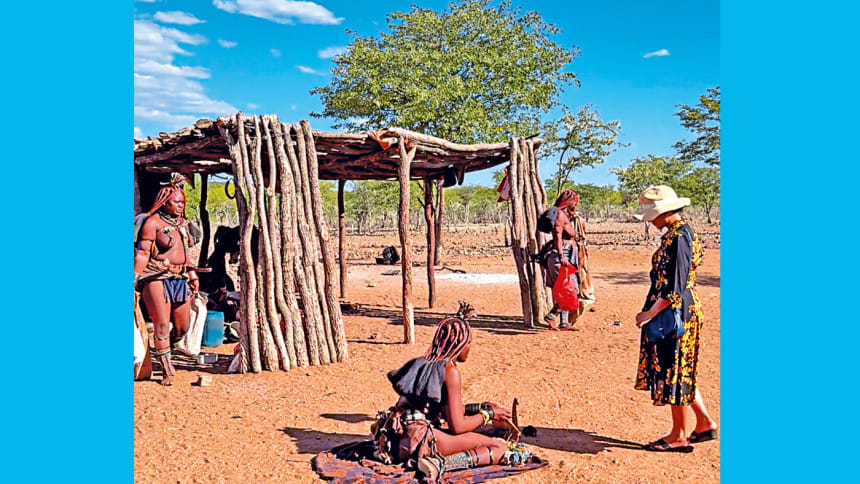
After years of travelling together across the globe, ticking off country after country, Namibia had long sat high on our bucket list. It was a dream destination, and as we finally landed, we knew we were in for something unique. From Namibia, we self-drove through the wild, uncharted landscapes of Botswana and Namibia, exploring the Okavango Delta and the vastness of the Kalahari Desert. It was a journey beyond words that would forever change us.
However, one of the most unforgettable experiences of this journey was our visit to a Himba village in northern Namibia, where time seemed to slow down. We drove to the village from Etosha National Park, which was about an hour south of the park's south gate. The heat was relentless, searing the earth and making every inch of the journey feel like a battle against nature itself. It was hard to imagine how people could survive here -- how they live with so little, surrounded by such vast emptiness.
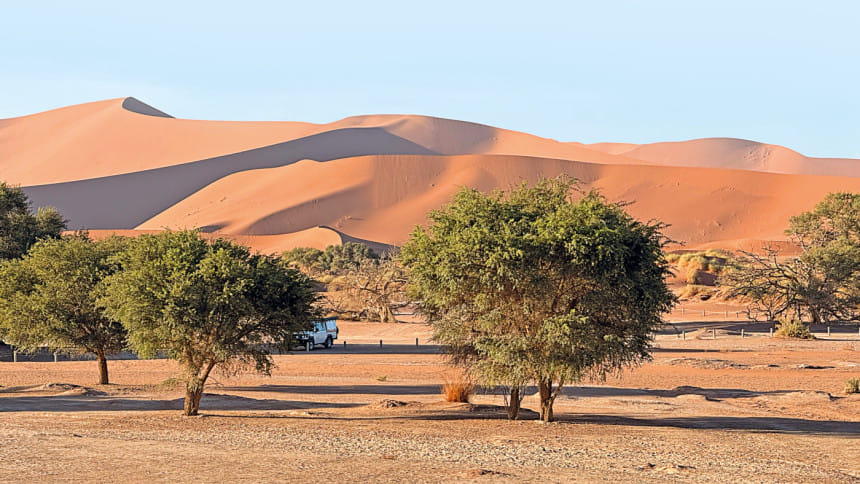
We've travelled to 117 countries, seen the extremes of wealth and poverty, and, at times, experienced both ourselves. But the Himba village was something else, a living testament to the idea that happiness doesn't always come with riches.
The Himba people, semi-nomadic and deeply connected to their traditions, live in a world that feels removed from the rest of the fast-paced humanity. The village was simple -- clay huts, grass roofs, and life lived entirely in tune with the land. There are no luxuries here, no modern comforts. Only the scorching sun, the dry earth, and the animals. Here humans were not masters, but one of the many species of Mother Earth who share this barren but beautiful landscape.
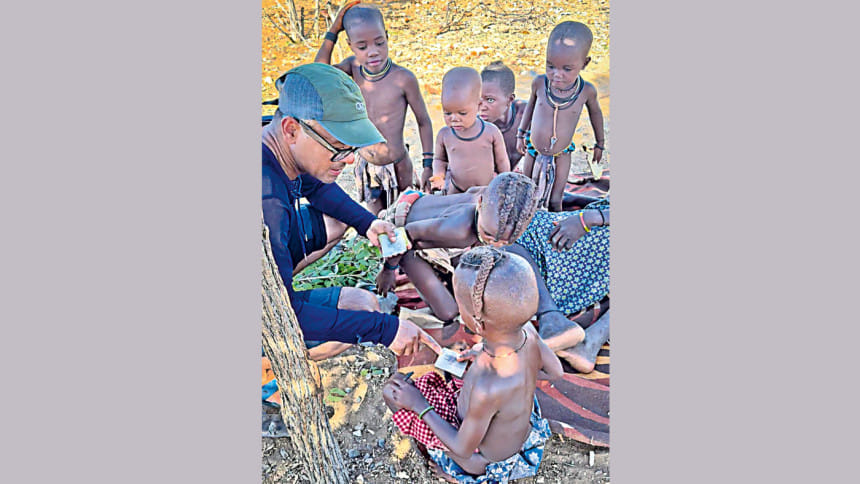
As we walked through the village, the heat was almost unbearable. Sweat dripped from our faces as we marvelled at the serenity of the people who seemed untouched by the discomfort we so acutely felt. The women, draped in their traditional red ochre, walked gracefully across the earth, their movements slow and deliberate, as though they had all the time in the world. Their lives were simple, but there was an undeniable peace in their existence.
We sat with them, speaking through a translator, and their faces were calm, their voices soft. They shared stories of their daily lives, and we listened in awe. Here in the heart of the Kalahari, there were no modern facilities, but the villagers had everything they needed. They had each other, the land, and the rhythm of life that they had followed for centuries. They live by their traditions, passed down from generation to generation, and in doing so, they might have discovered something many of us seem to have forgotten: that happiness is not tied to wealth.
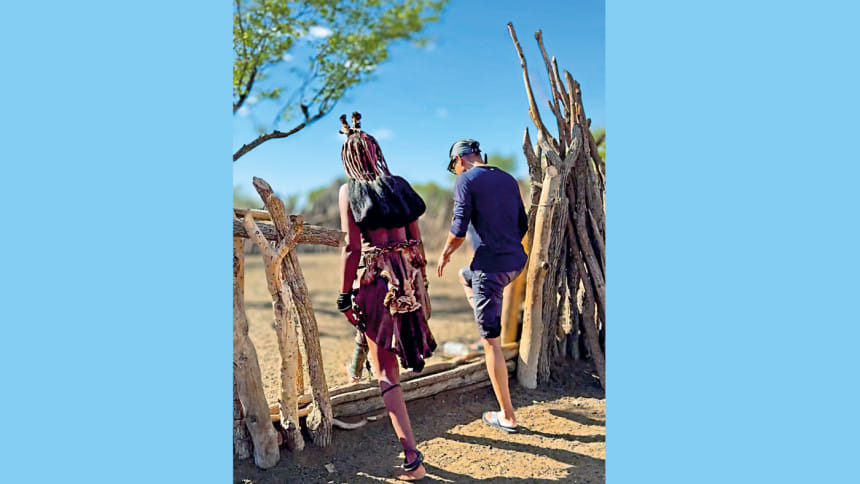
In the desert heat, where life should seem impossible, the Himba people had mastered the art of living in harmony with nature. They didn't need to accumulate wealth or material possessions to feel fulfilled. Their happiness came from the relationships they nurtured, the community they built, and their deep connection to the world around them.
As we looked at the vast Kalahari Desert stretching out before us, it struck me how often we define happiness by what we have — possessions, money, status. We believe that more is better and that happiness lies in the accumulation of things. But here, in this small village in the heart of the desert, we saw a different kind of wealth -- one that couldn't be measured in dollars or gold, but in love, tradition, and a profound sense of belonging.
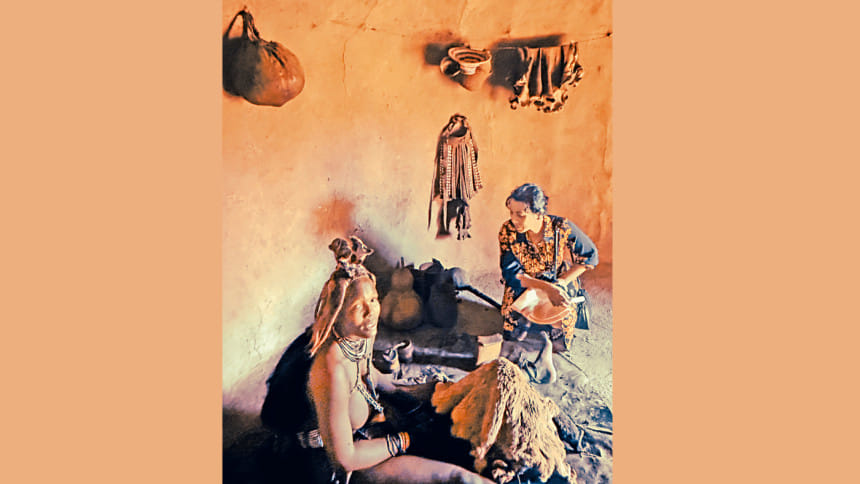
We had driven to this village in a comfortable, air-conditioned car, with access to food, water, and shelter at our fingertips. We had the luxury of leaving whenever we wished, returning to the comfort of our modern lives. Yet, it was the Himba people who had shown us the true meaning of richness. They live with so little, and yet they have everything they need. Their joy wasn't tied to what they owned, but to how they lived -- and in that, they were truly wealthy.
We left the village feeling humbled. In a world where we are constantly told that happiness lies in more -- more money, more things, more success -- the Himba taught us that happiness is about less. It's about simplicity, connection, and being present in the moment.
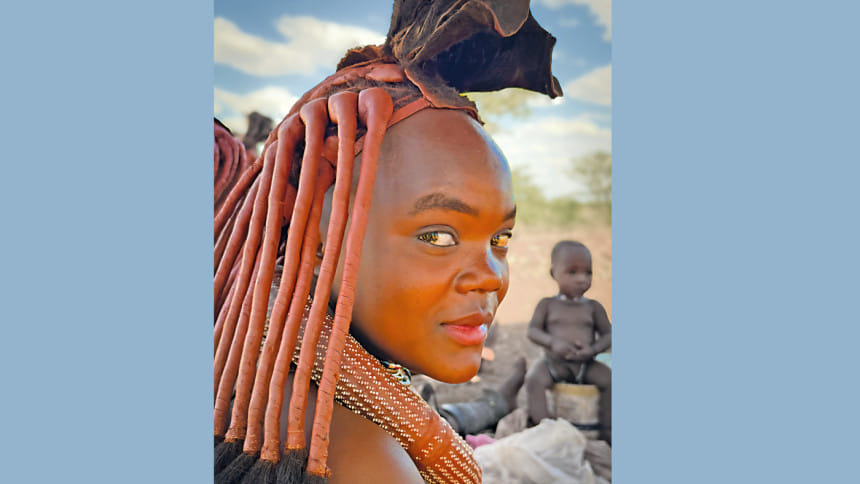
Our visit to the Himba village reminded us just how lucky we are. Not because of the material things we have, but because we have the freedom to live our lives with choices and opportunities. So many people in the world don't have that luxury, yet they manage to find joy in the smallest things. We often take our comforts for granted, never stopping to realize how fortunate we truly are.

The visit taught us something we will never forget: that happiness isn't about what we have, but about what we value. And sometimes, the richest lives are the simplest ones. In the vast, unforgiving deserts of Namibia, we were reminded that life is not about the things we accumulate, but about the love we give and the way we live.
As we continued on our journey, we carried with us a new understanding of what it means to be truly rich—and a deep sense of gratitude for the life we are lucky enough to live.

 For all latest news, follow The Daily Star's Google News channel.
For all latest news, follow The Daily Star's Google News channel. 


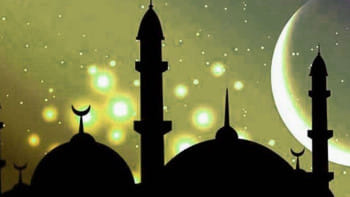
Comments